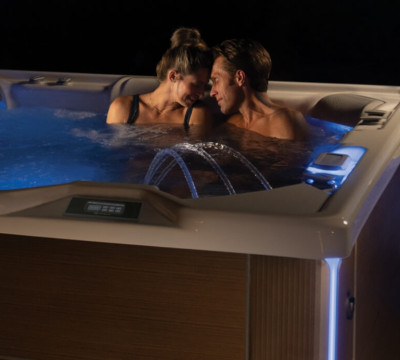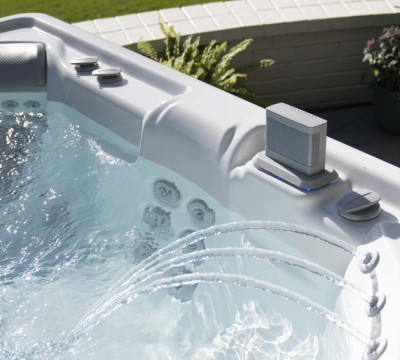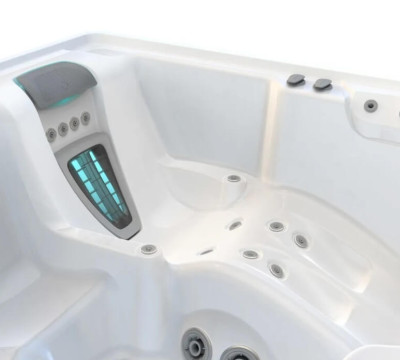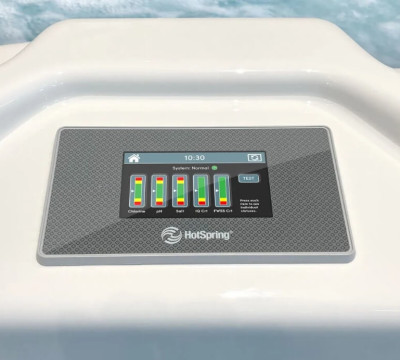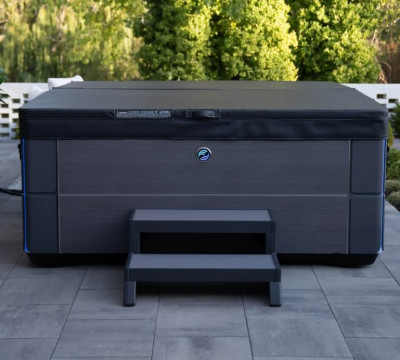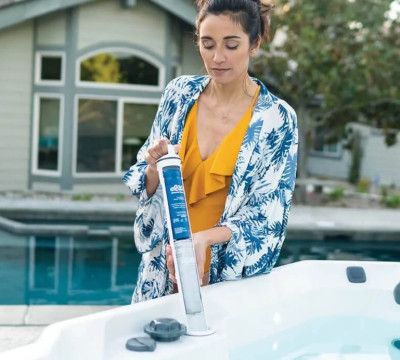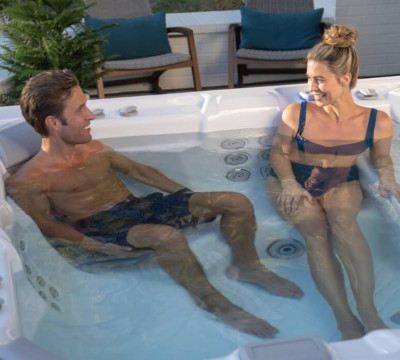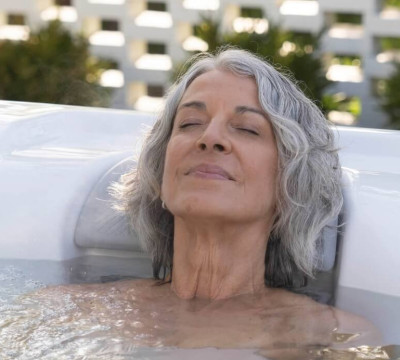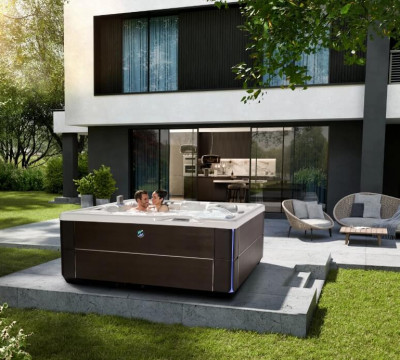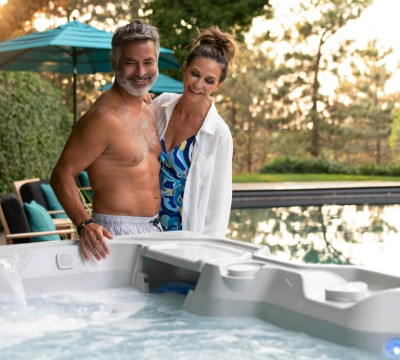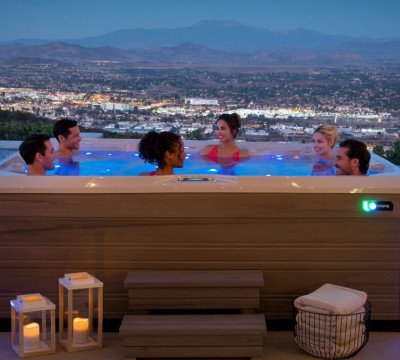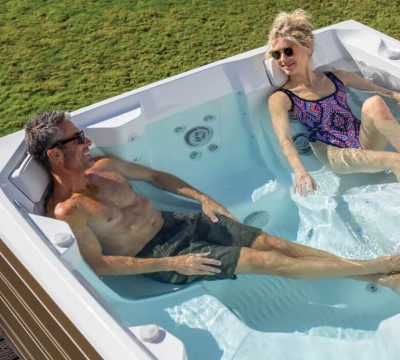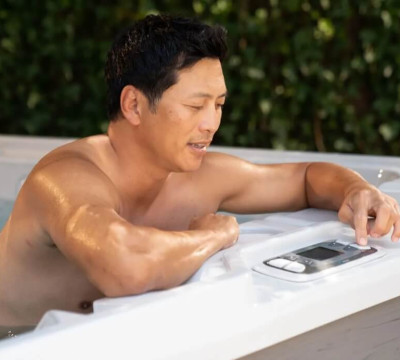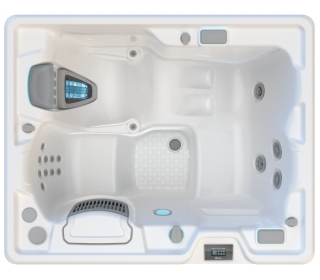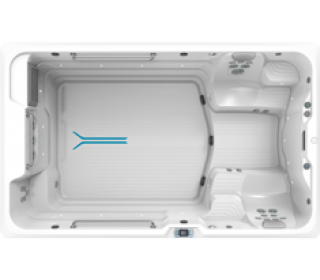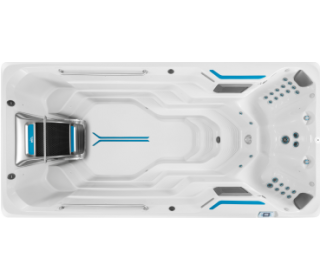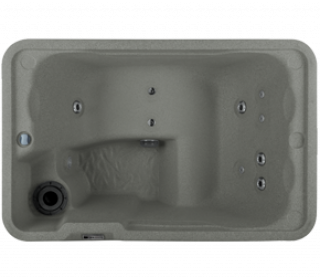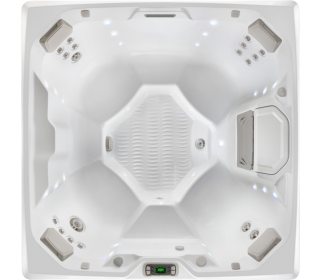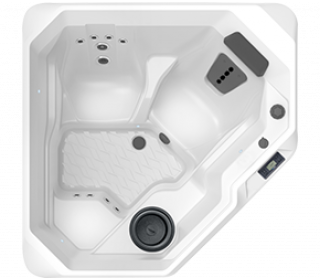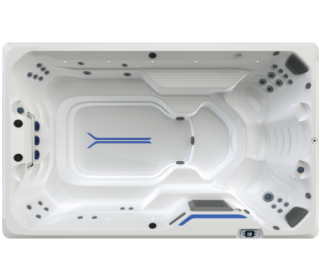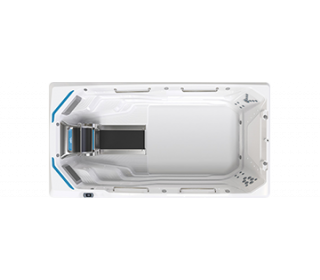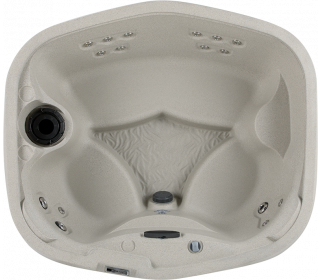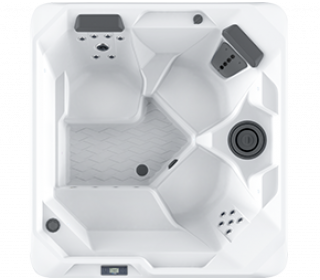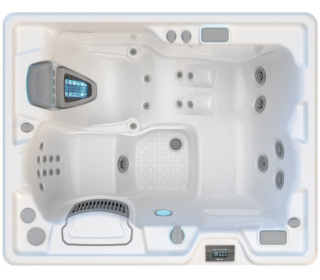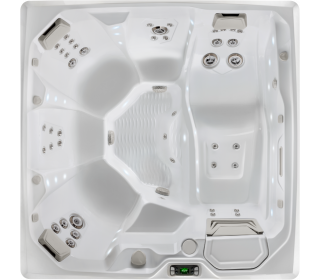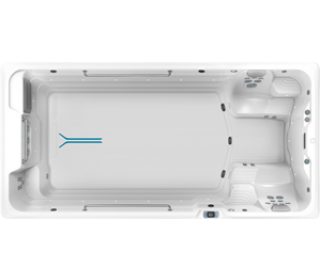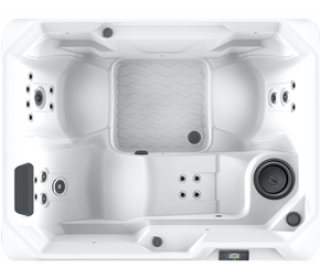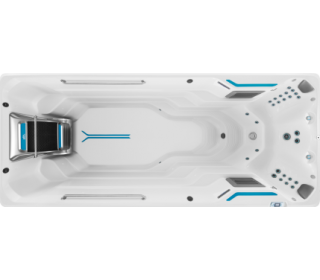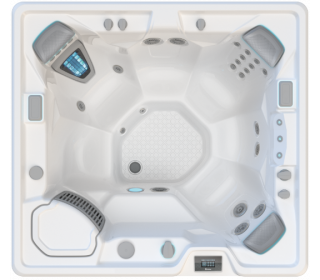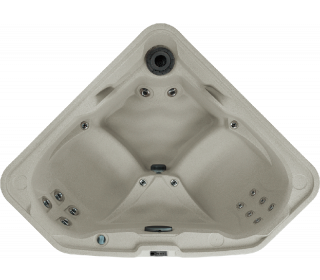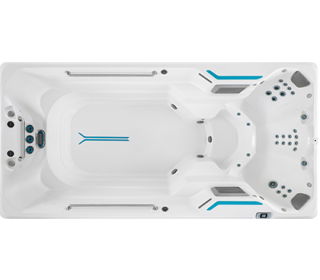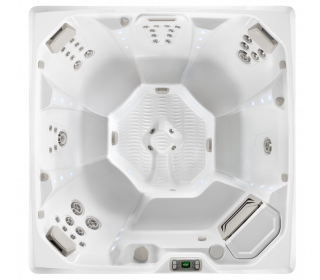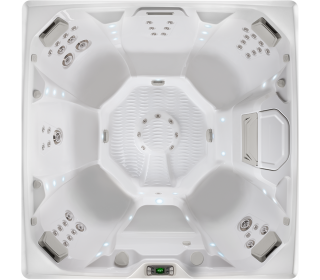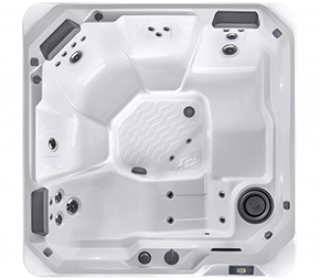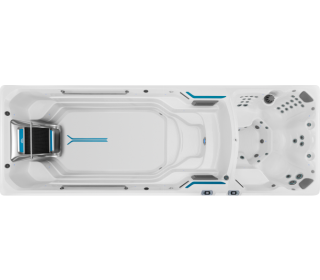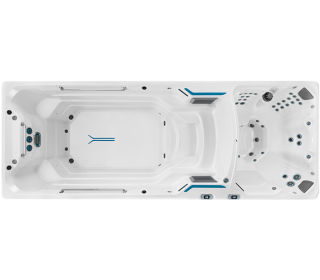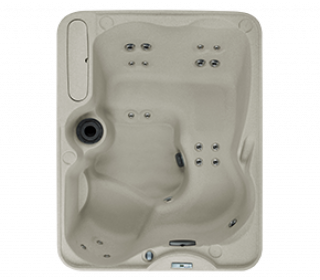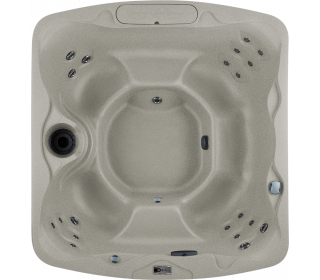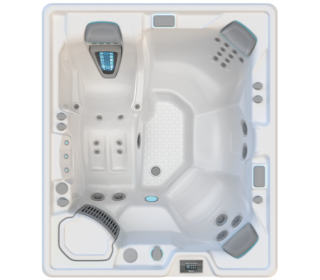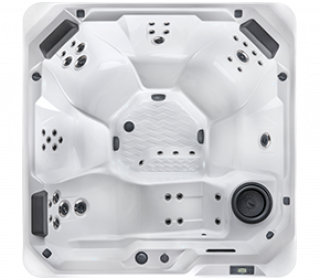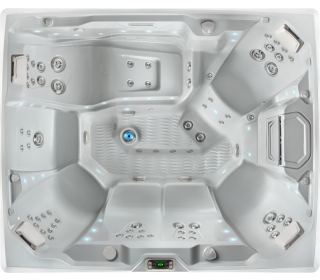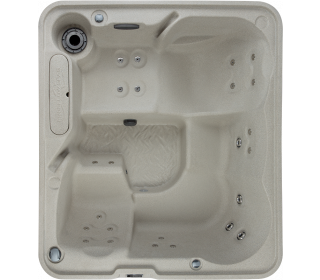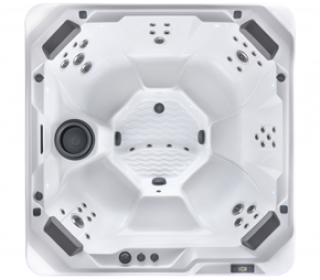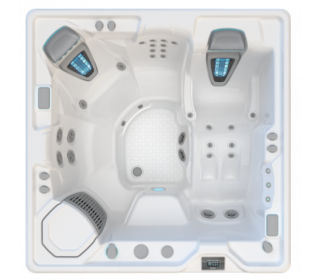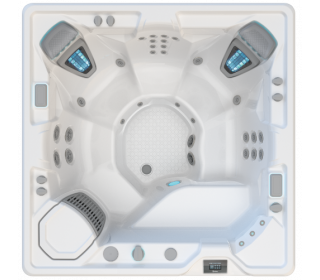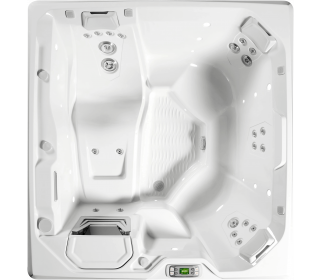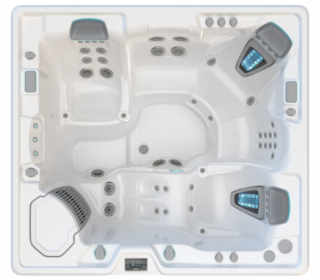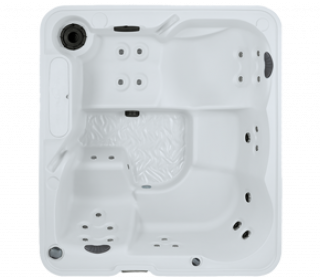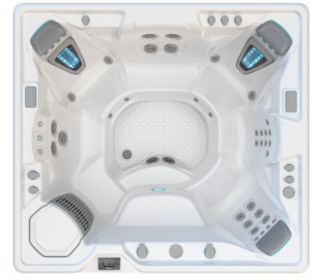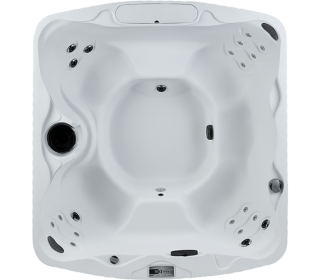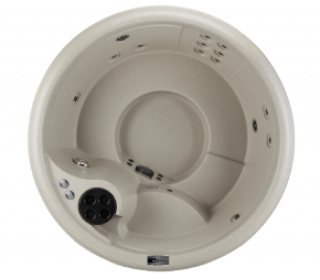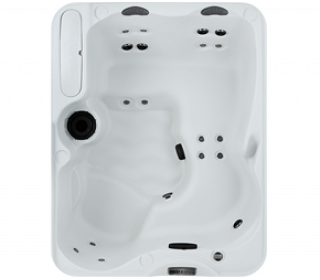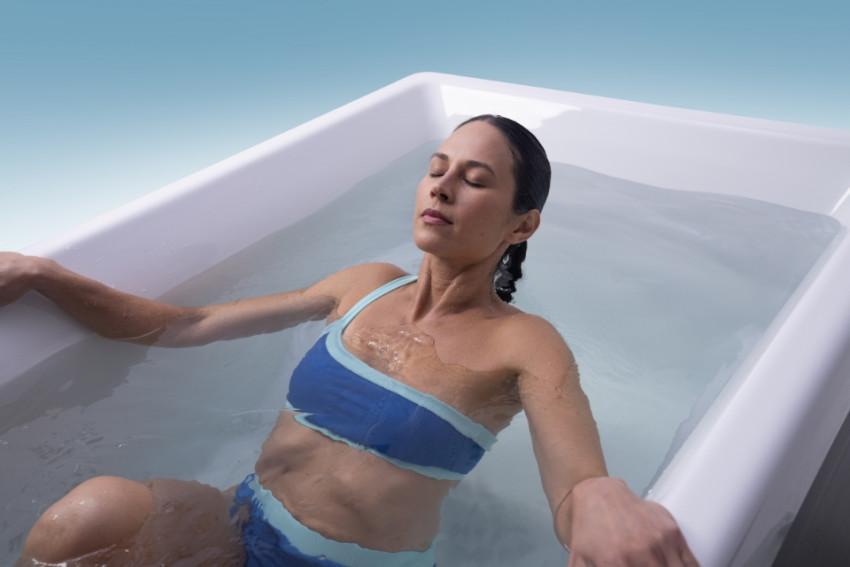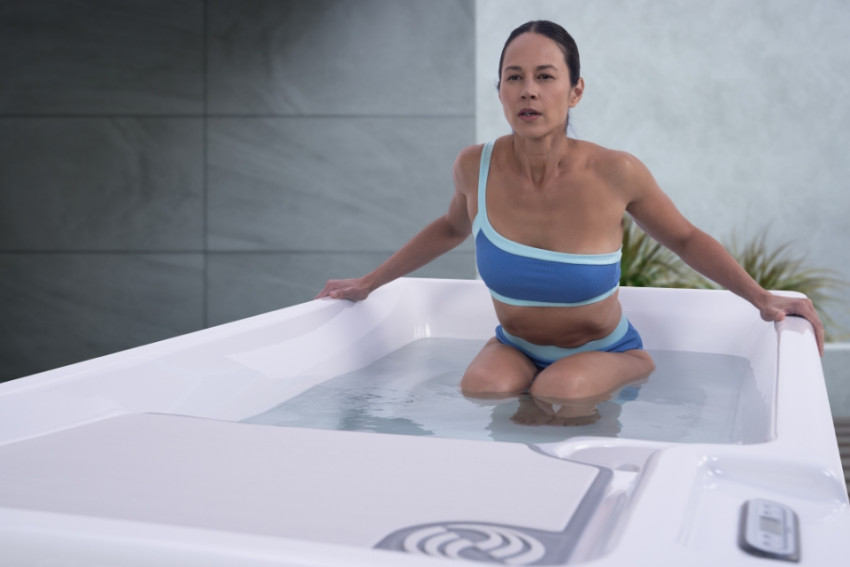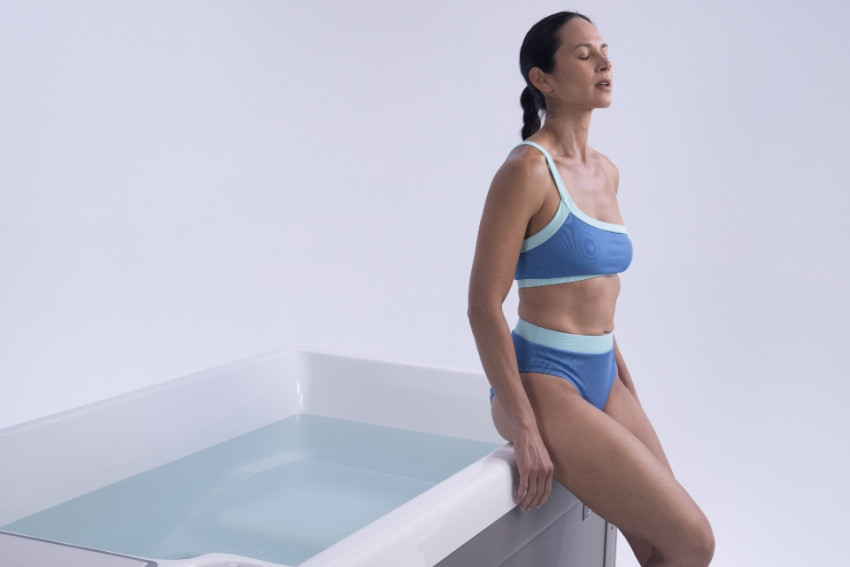Inflatable spas offer a mix of luxury, affordability and portability that have made them a popular choice for Kiwi homeowners in recent years. They’re a fun and unique purchase; one that can see you enjoying something like a day spa in your own backyard.
An inflatable spa is exactly what it says on the packet: a spa pool made of flexible, inflatable material that you pump full of air, fill with water and enjoy. The question of whether you should buy one is slightly trickier, as while they offer a comparatively low upfront cost, inflatable spas aren’t as durable, efficient or luxurious as their more robust counterparts.
In this article we’ll be looking at the question of whether to buy an inflatable spa in more detail, with the aim of giving you the information you need to make the right decision for you.
So, without further ado, let’s learn about inflatable spas, and how they compare to an investment in a more traditional spa pool.
What is an inflatable spa?
First things first: what exactly is an inflatable spa pool?
Inflatable spa pools feature walls made of flexible, inflatable plastic, with jets placed either in these walls or in the base of the spa, and a pump and water heater circulating H2O outside of the spa. When pumped full of air, the walls have some basic insulation properties that help to keep the water warm.
Inflatable spas are usually circular, though they also come in other shapes like squares, rectangles and octagons. Some feature inflatable backrests and seats, and most come with a control box that allows you to control the jets and heat.
Inflatable spa pools are generally made of layers of flexible materials, including polyester mesh, PVC, UV-resistant laminate, and other layers that aim to strengthen the spa. That said, the lack of solid materials means that inflatable spas can be prone to accidental punctures and tears.

Are inflatable spas expensive to run?
One of the first questions most people ask about inflatable spas is how expensive they are to run. On the plus side, inflatable spas are usually smaller than non-inflatable spas, so there’s less water to heat, and don’t generally feature jets that are as powerful, so they can use less power while moving the water around (though obviously both of these facts mean that inflatable spa pools don’t offer the same level of luxury as other spas.)
The tripping point for inflatable spas is heat retention. When compared to high-quality insulation, the air within the walls of an inflatable model isn’t great at keeping the heat in. This is the number one ongoing cost that spa pool owners face, so while you might save some money upfront, some inflatable spa pool owners might find themselves out of pocket in the long run, or hesitant to use their spa at all.
It's wise to ask yourself:
- What is my local climate? If you live in a cold area, the heating bills for your inflatable spa could be large.
- How often do I plan to use the spa? If you want to enjoy a soak every day you’ll need to keep the water constantly warm (and use a lot of power in the process.)
- Do I want to use the spa in winter? This will be when your heating bills will be highest.
- Where will I position my spa? Most heat will be lost through the base, so think carefully about the surface you’ll be placing your inflatable spa pool on.
In short, while inferior water care systems might add to your water bill, and inefficient pumps and jets might add to your power bill, the price of running an inflatable spa will primarily be determined by the need to keep it warm.
Can inflatable spas be left out in winter?
Because they lack the insulation that is otherwise seen in portable spa pools, using an inflatable spa over winter can turn into a rather expensive affair. But can an inflatable spa simply be left out over winter? Or do you spend the time and energy to drain it and deflate it before the season hits?
In order to compactly fold away, inflatable spa pools feature walls that are made of a thin, flexible fabric. Unfortunately this fabric doesn’t stand up to the elements particularly well – it can be affected by the sun in summer, and by the cold – particularly sub-zero temperatures – in the winter.
Water expands when it freezes, so if you leave your inflatable spa pool out over the coldest months, you run the risk of the water tearing the walls of the spa while it expands and solidifies into ice.
There are no such issues with a Hot Spring spa pool. First, the insulation keeps the water warm. Second, we make New Zealand’s most energy efficient spa pool, which costs as little as $1 a day to keep warm and running. Third, the high quality and robust materials used in the construction of a Hot Spring are designed to handle whatever Mother Nature can throw at it!
How reliable are inflatable spas?
It’s a universal truth: you get what you pay for. Inflatable spa pools are the cheapest spa option for a reason – they aren’t known for their quality. Most of the manufacturers of these machines find themselves in a race to the bottom, attempting to outprice their competitors however they can.
This situation usually results in the use of cheap parts and materials that aren’t known for their longevity. Inflatable spas are therefore the most disposable of spas that rarely offer spare parts if a breakdown occurs.
The Hot Spring approach is a little different: we are the only Kiwi spa pool manufacturer that guarantees the supply of spare parts for 20 years – a testament to the confidence we have in the reliability of our machines. We also offer constant support through our extensive network of expert dealers found up and down the country. If you’ve got a spa pool problem, we’re ready to fix it.
How long will an inflatable spa last?
If most inflatable spa pools are built rather cheaply, and if spare parts might be hard to come by, how long can you reasonably expect an inflatable model to last?
There’s an element of ‘how long is a piece of string’ to this question, but the average lifespan seems to be in the range of 2-3 years. That said, some inflatable spa pool owners report problems in the first few months of ownership, while others happily soak in their machines for five years or more.
2-3 years might seem like a decent amount of time… until you compare it to a Hot Spring spa pool. We build our spas to last by using the latest technologies and highest quality materials. We offer extensive warranties, and by guaranteeing spare parts for at least 20 years, you can be confident that your machine is protected against breakdowns for decades to come.
If you’re looking for a spa pool that you can enjoy for the long haul, look no further than a Hot Spring.
Do inflatable spas have powerful jets?
Can you expect a high quality hydromassage experience from an inflatable spa pool? The short answer is no, at least not when compared to a non-inflatable spa pool.
Once again, inflatable spa pools are designed more with cost-effectiveness in mind than the soaking experience. Minimal investment is made in the jets, both in terms of innovation and build quality.
Hot Spring, on the other hand, is a global leader in hydromassage innovation. Our premium models feature up to 10 different styles of jet, each designed and strategically placed to soothe a specific part of the body. And speaking of powerful jets, none are more powerful than the hydraulic beasts that sit at one end of our Endless Pools E-Series swim spas, capable of moving up to 19,000L per minute!
Do inflatable spas need to be plugged in?
Yes, inflatable spa pools do need to be plugged in, because a spa pool without power is essentially a bath. The electricity is used to heat the water, run the filter and power the jets, and because of the limited strength of those jets, a standard outlet is all you’ll usually need to run an inflatable spa pool.
But there are self-contained spa pools that can also be powered from a standard outlet. Take the Hot Spring Freeflow range – our collection of entry-level spa pools. These spas offer the style, innovation, soaking experience and build quality that Hot Spring is famous for, while featuring Plug’n’Play technology: installation is as simple as placing your spa, filling it, plugging it in and turning it on!
Does an inflatable spa need building consent?
What are your responsibilities as the owner of an inflatable spa pool in New Zealand? There are no universal rules that cover the whole country. Building consent rules are determined by local councils, as are fence requirements, although many councils subscribe to the following regulation for the latter:
"If a spa can hold 400mm of water or more, it must be surrounded by an approved barrier or closed with a lockable cover when it is filled.*"
Should I buy an inflatable spa or portable spa?
At first glance you might presume that an inflatable spa and a portable spa are the same thing – inflatable spas are portable, after all. But portable spas represent a separate category of spa pool, offering a number of features that inflatables do not.
Portable spas, otherwise known as hot tubs, freestanding spas or Jacuzzis® (an eponymous brand), are pre-built spa pools that can be dropped into position (and can be taken with you when you move, thus the word ‘portable’) and that feature solid cabinetry in which all the components, like jets, pumps, heaters and insulation are contained.
While inflatables and portables are both moveable spas filled with pumped and heated water, inflatables can be deflated and packed away, while portables tend to offer a more luxurious, efficient and long-lasting ownership experience.
An inflatable spa might represent a wise purchase if:
- You can’t afford the upfront cost of a portable spa: Inflatables are cheaper to buy, though you should keep in mind that they can be more expensive to run and are not as durable as regular spa pools.
- If you only plan to use your spa on special occasions: If you only plan an occasional soak, the higher running costs might not matter as much as the lower upfront price.
- You want to take your spa pool on trips: The ability to deflate and pack tightly away makes inflatable spa pools ultra-portable.
- If you have very limited space: If you don’t have much space, inflatables can be deflated and stowed away while not in use.
A portable spa might represent a wise purchase if:
- You want a luxurious soak: High-quality portable spa pools offer a better soaking experience than inflatables. You get the benefit of comfortable seating, targeted jets, and even relaxing sound and lighting systems.
- You plan to use your spa regularly: If you choose a portable spa with high-end insulation, efficient machinery and an innovative water care system, your running costs will be far lower than in
- You want a spa that lasts: Solid plastic is simply more robust than flexible plastic. It will last longer out in the weather, and won’t be anywhere near as vulnerable to punctures and tears.
- You want to enhance your health and wellness: A cleverly designed portable spa pool with strategically placed jets can help you cope with any number of ailments, from arthritis to fibromyalgia, while improving everything from circulation to mental health.

The truth is that placing an inflatable spa pool next to a portable spa pool doesn’t make for a fair comparison. An inflatable is cheap and cheerful – an item made for those with a limited upfront budget, limited space, and who want to enjoy a soak a handful of times a year, perhaps on the road.
In almost every other situation, a portable spa pool represents a far wiser investment. Offering superior efficiency, longevity and luxury, these spa pools are ideal for those who are serious about their water-based investment.
If you’re ready to enjoy the ultimate portable spa pool experience, look no further than a Hot Spring. Get in touch with our friendly team, or book a test soak today!


